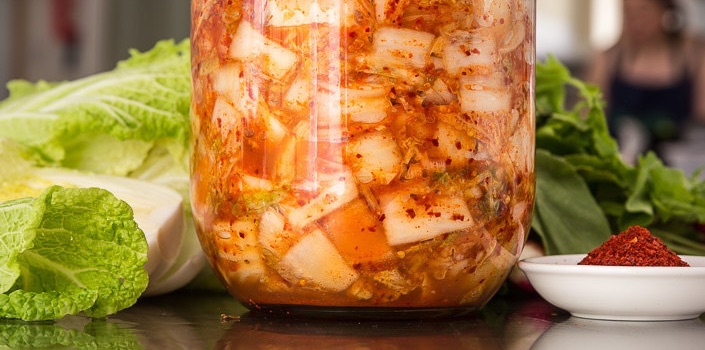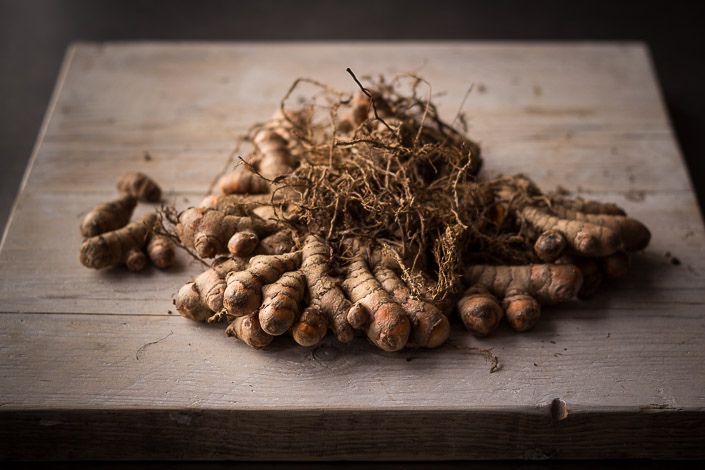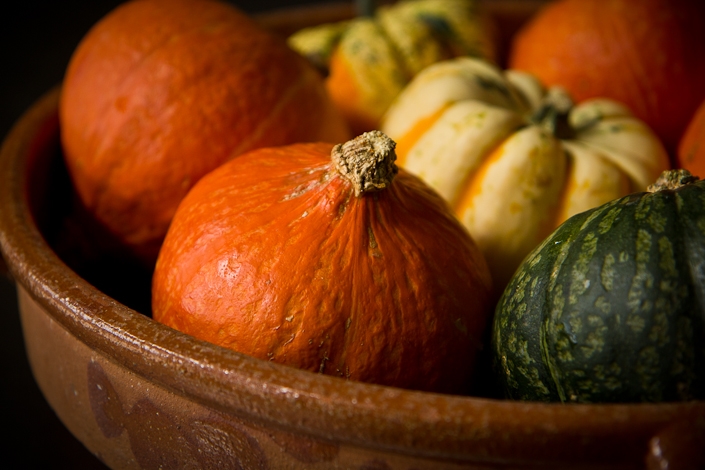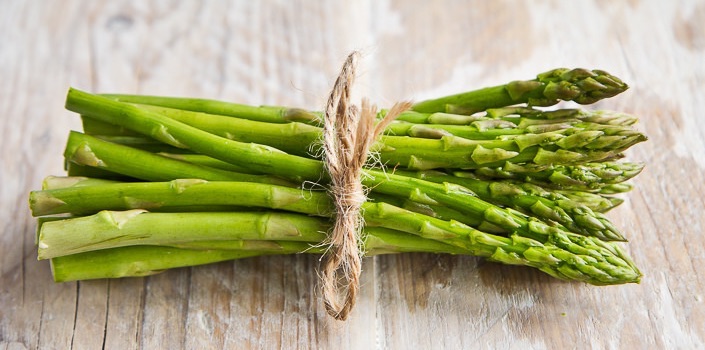Fermentation for Beginners

Fermentation is the trend everybody is talking about, from sauerkraut to kombucha, people are starting to latch onto the benefits of fermented foods, as demonstrated by our sell-out fermentation courses with Lucie Cousins. However, fermentation is nothing new; it’s actually an ancient method to produce and preserve food and drinks. We’re currently rediscovering how tasty and healthy fermented cuisine can be; I think it’s a great addition to our diet! Fermentation is fascinating as it increases beneficial bacteria, antioxidants, vitamins and enzymes, which are all fantastic for healthy gut health.
A popular fermented food is sourdough, but I’d seek out more unusual examples, such as kefir (a fermented milk drink), kombucha tea or fermented vegetables, such as sauerkraut and kimchi.
How does Fermentation work?
Sauerkraut is where most people start with fermentation and it's a great example of how the process works. In a nutshell, you chop up a bunch of cabbage and mix it with a good amount of salt. The salt draws out moisture from the cabbage, and with the application of a heavy weight, you can actually submerge the cabbage in its own juices (aka brine).

What happens next is a process called lacto-fermentation. Lactobacillus is one of the benefcial bacteria found naturally in raw veggies, fruits, yoghurt and other cultured foods, including cabbage. When the cabbage is submerged in brine, the bacteria converts the natural sugars into lactic acid, which, in turn, preserves as it inhibits the growth of harmful bacteria. Over time, the fermented cabbage develops its sour flavour that we know and love as sauerkraut.
Our Top 5 Fermented Foods
- Tempeh - fermented soybeans in a cake-like form factor which you can slice, marinate, and cook much like tofu. And like tofu, it's a great protein source for vegetarians! See our article on tempeh basics for more.
- Sauerkraut - Fermented cabbage high in fiber, and vitamins A, C, K and B. Sauerkraut is delicious with everything! Try it on a sandwich or in an omelet!
- Kimchi - a traditional fermented Korean dish made from Napa cabbage and other vegetables. A staple of Korean cuisine! Try our recipe for vegetarian kimchi.
- Kefir - a fermented milk product that tastes much like a drinkable yoghurt.
- Kombucha - a fermented beverage made of tea and sugar. Once fermented, kombucha becomes carbonated and full of probiotics, enzymes, and B-vitamins. It's also immensely refreshing and when consumed daily can help improve digestion.

Fermentation Courses at Demuths
In response to the rise in demand for fermentation courses, we've added a few new classes to the calendar that we hope you'll love:
- Fermentation with Lucie Cousins
- Tempeh and Tofu Evening Workshop
- Fermented Nut Cheese Evening Workshop
Find us on Facebook, Twitter, Pinterest and Instagram where we are chatting about all things foodie and, if you like this post, please share it!
To keep up to date with events and goings on at the cookery school sign up for our newsletter.



